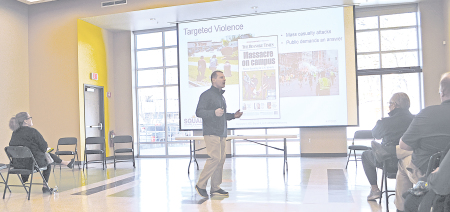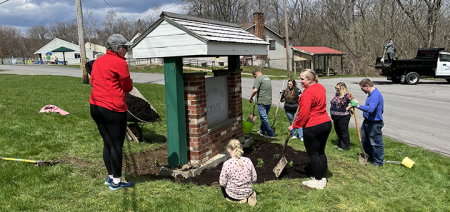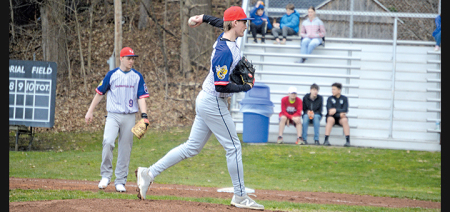What Will It Take To Rebuild Trust?
Published:
December 9th, 2014
By Donna Brazile, NEA Columnist
Civil rights leaders, led by Marc Morial of the National Urban League, met in New York City on Dec. 4 to discuss steps that should be taken to help rebuild trust between law enforcement officials and the citizens they are sworn to protect. The leaders promised to hold a march on Dec. 13 in Washington, D.C., followed by a summit focused on education and boycotts.
These actions come after the high-profile grand jury decisions not to indict cops in the deaths of Mike Brown of Ferguson, Missouri, and Eric Garner of New York.
The president himself held a meeting with civil rights, community, faith, youth and law enforcement leaders in the Oval Office a week after the Ferguson decision to discuss how to rebuild trust.
As one of my friends who is studying abroad stated: "The part about (the grand jury decisions) that most makes me want to cry out, in sadness and frustration, is that there are not two sides to this issue. People are choosing sides, allying their loyalty with either law enforcement or the protesters. But the process isn't as intellectual or deliberate as that.
"People have natural sympathies. Those who have only had universally good experiences with police find it impossible to imagine that an officer would shoot an unarmed man without good reason. Immediately, they assume Darren Wilson had good reasons, and then the filtering mode goes into effect. They seek out information that confirms their worldview and dismiss the information that calls it into question. The same is happening on the side of the protesters."
That's why we continue to get locked in debate about the details of Michael Brown and Darren Wilson's interaction. All that matters is that Brown was another person of color, killed while unarmed, by police. Since Brown's death, there have been 14 other teenagers killed by police. The problem here is not that it happened once, under suspicious circumstances, but that it keeps happening.
And now the cop who killed Eric Garner with an illegal chokehold has not been indicted by a grand jury.
When candidate Barack Obama gave his great speech about race in 2008, he quoted a conservative white novelist from Mississippi who famously wrote: "The past isn't dead and buried. In fact, it isn't even past."
Tragedies like the killings of Brown, Trayvon Martin and the 12-year-old Tamir Rice in Cleveland don't happen in a historical vacuum. They're part of a terrible history in which black people's lives have not been valued. Black lives weren't recognized as fully human in the days of slavery. They were commodities, so it was okay to enslave and destroy them.
When there's a shooting of a young black man by a white police officer, many African-Americans, as well as whites with a sense of history, respond with a weariness and anger reflecting decades of similar tragedies.
Of course, we have come far since the days of slavery and Jim Crow. Black people can vote, sit at the same lunch counters, even reach the highest offices in the land. Much has changed. But the racism that allowed for the institution of slavery is not all gone. It lingers perniciously.
These cops who have killed black kids -- they probably got scared or angry or both, and they overreacted. I don't believe any of them ever thought, "This person's life is worthless because he's black. I'll shoot him because no one will care and I won't get in trouble."
That's why this issue isn't two-sided. There is no "being on the side of the cops." We are all on the side of the cops. No one wants unarmed children and teenagers gunned down. Not by thugs or gangs and not by police. Imagine the psychological damage it must cause to know you are responsible for murdering a child like Tamir Rice, who was playing with a toy gun.
So let's take steps together that protect everybody. All cops should wear body cameras. According to the Police Foundation, the findings of a randomized, controlled trial suggest that using body cameras would reduce the total number of use-of-force complaints by 50 percent. That is a win-win for everybody, and infinitely feasible given how cheap the cameras are compared to the settlement of a lawsuit related to excessive force.
To outfit the entire Ferguson police department with cameras would cost less than $20,000, less than 0.37 percent of the Ferguson Police Department's budget in 2014.
Cameras don't solve centuries of ingrained racism and subtle biases. But, if they stop more little black and brown kids from getting shot, we need them. Thankfully, the president has already made progress on this issue with a three-year amount of $263 million in federal funds being requested for the purchase of body cameras.
Compassion and listening are what I can prescribe for ingrained racism and subtle biases. Seek out the stories of those who have a different experience from you. Don't look for reasons they're wrong or overly sensitive. Just listen. Listen and accept that race -- like gender or age or any other immutable and obvious characteristics with socially imbued meaning -- colors our experience of the world. But it shouldn't determine whether we have something to fear from those sworn to protect and serve. The law and its representatives should protect us all, equally. Until then, we all have work to do.
Comments








